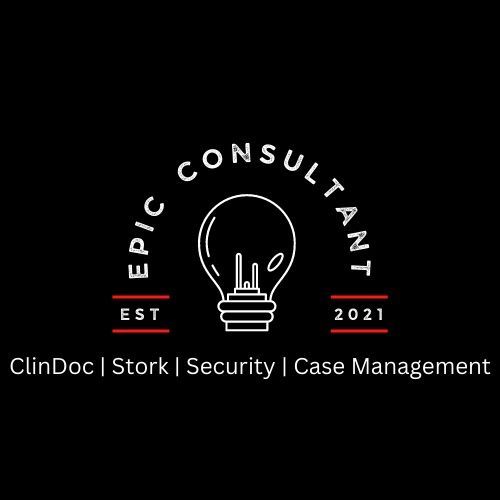The Edge - Thought Leadership on the Epic (EHR)
The Future of ChatGPT-4: Revolutionizing Electronic Health Record (EHR) Documentation with AI

Introduction:
The rise of artificial intelligence (AI) has made a profound impact across various sectors, including healthcare. OpenAI's ChatGPT-4, a natural language processing (NLP) model, promises to transform how we interact with technology, opening up new possibilities and challenges in EHR documentation. In this blog, we delve into the future of ChatGPT-4 and its potential influence on electronic health records (EHRs).
1. ChatGPT-4 Evolution: Pioneering AI in Healthcare
Understanding the trajectory of ChatGPT-4 development is vital to predicting its future in healthcare technology. With each iteration, OpenAI refines the model's capabilities, leading to more accurate language processing and predictions.
In the coming years, expect OpenAI to integrate cutting-edge research and computational advances for even more sophisticated AI models. Enhancements in context awareness, personalization, and emotion detection will result in smarter, more intuitive interactions.
2. Revolutionizing EHR Documentation with ChatGPT-4
Electronic health records (EHRs) are crucial for modern healthcare management, streamlining patient information storage and access. ChatGPT-4 has the potential to transform EHR documentation through:
a) Accelerating Data Entry with AI
By automating data entry, ChatGPT-4 allows healthcare professionals to quickly input information into EHR systems. AI also improves accuracy by identifying potential errors or inconsistencies in real-time.
b) Decoding Clinical Notes for Better Understanding
NLP models can translate medical jargon and abbreviations into layman's terms, increasing the accessibility of clinical notes for both patients and professionals in other medical disciplines.
c) Context-Aware Documentation
Future ChatGPT-4 models may better understand context, leading to more efficient documentation by suggesting relevant information based on current patient cases, provider preferences, and clinical guidelines.
3. Personalized Patient-Provider Communication with ChatGPT-4
Effective communication is essential for quality healthcare delivery. ChatGPT-4 can revolutionize patient-provider communication by generating tailored messages based on individual preferences, language, culture, or health literacy.
AI-driven communication tools can also facilitate remote patient monitoring by sending relevant alerts and reminders, enhancing patient engagement and improving health outcomes.
4. Challenges and Ethical Considerations for AI in EHR Documentation
As with any technology, there are challenges and ethical considerations in adopting AI-driven tools like ChatGPT-4 for EHR documentation:
a) Data Privacy and Security
AI integration raises concerns about data privacy and security. Robust measures must protect sensitive patient information and comply with healthcare data protection regulations like HIPAA.
b) Addressing AI Bias
Biased AI models might produce inaccurate or discriminatory recommendations, affecting patient care. Monitoring, evaluating, and addressing biases is crucial for fair, accurate AI use in healthcare.
c) Ethical Implications
Boundaries for AI use in healthcare require consideration. Determining human oversight, responsibility, and accountability for AI-generated decisions is an ongoing debate. Transparency and ethical standards must be maintained.
5. Preparing for the AI-driven Future of EHR Documentation
To harness ChatGPT-4's potential in EHR documentation, several actions must be undertaken:
a) Cross-Disciplinary Collaboration
Collaboration between AI developers, healthcare professionals, and stakeholders is vital for addressing unique challenges in AI healthcare implementation, ensuring effective AI models that improve patient outcomes.
b) Education and Training
Healthcare professionals must acquire knowledge and skills to collaborate with AI-driven tools effectively. Training in data science, ethics, and AI capabilities is essential.
c) Regulatory Frameworks and Standards
Developing and updating regulatory frameworks and standards that address the unique challenges of AI in healthcare is crucial. This involves creating guidelines that ensure patient information safety, privacy, and security, while also promoting responsible and ethical AI use.
Conclusion:
ChatGPT-4's future in electronic health record documentation promises to revolutionize healthcare processes and improve patient-provider communication. However, it is essential to address challenges and ethical considerations associated with AI implementation to fully capitalize on its potential in healthcare. Fostering collaboration, promoting education, and establishing robust regulatory frameworks will help the healthcare industry prepare for the transformative impact of AI-driven EHR documentation. By embracing these advancements, we pave the way for a more efficient, accessible, and personalized healthcare experience for both patients and providers.
a b c d e f g h i j k l m n o - Do not remove from template!!! it is important to support different fonts

john@johnfaulkner.co
If you are a healthcare executive, book your Epic Expert Analysis.
After our confidential, 20-minute analysis you will...
- Receive tips to implement
- Unique insight on your issue(s)
- Find new business growth opportunities.